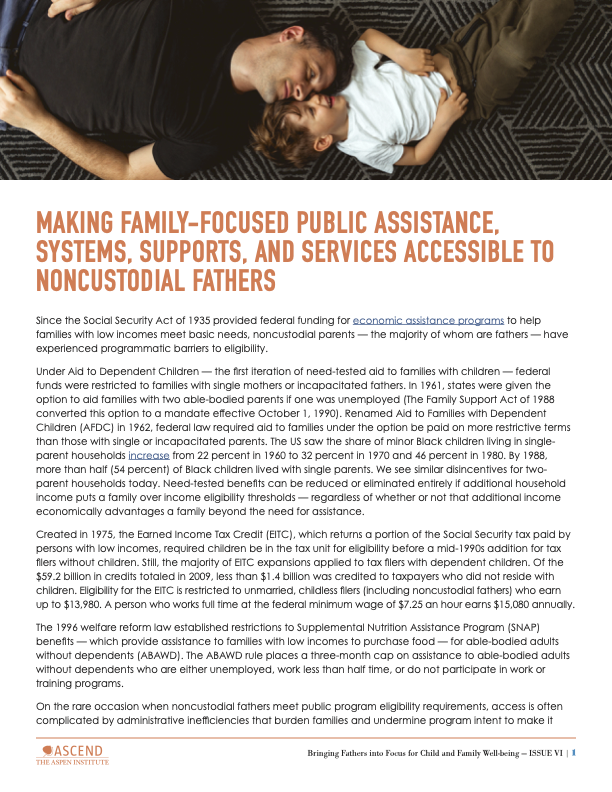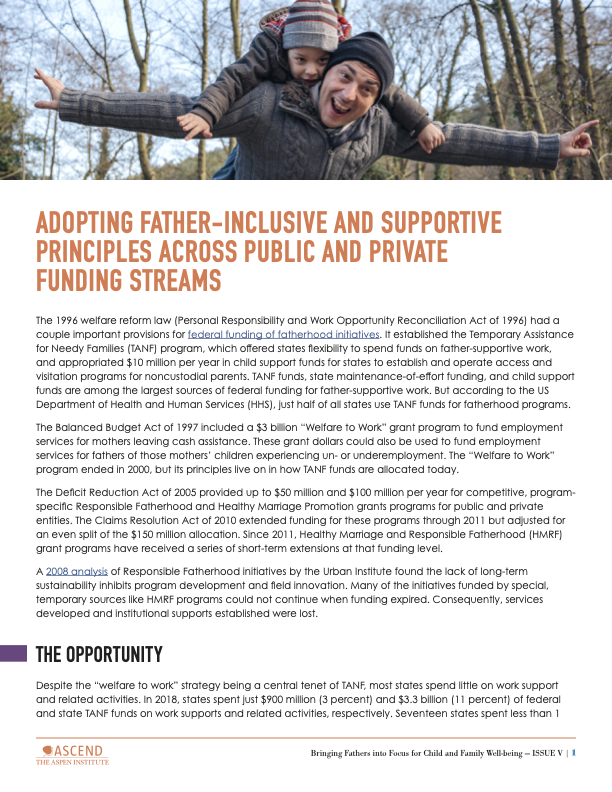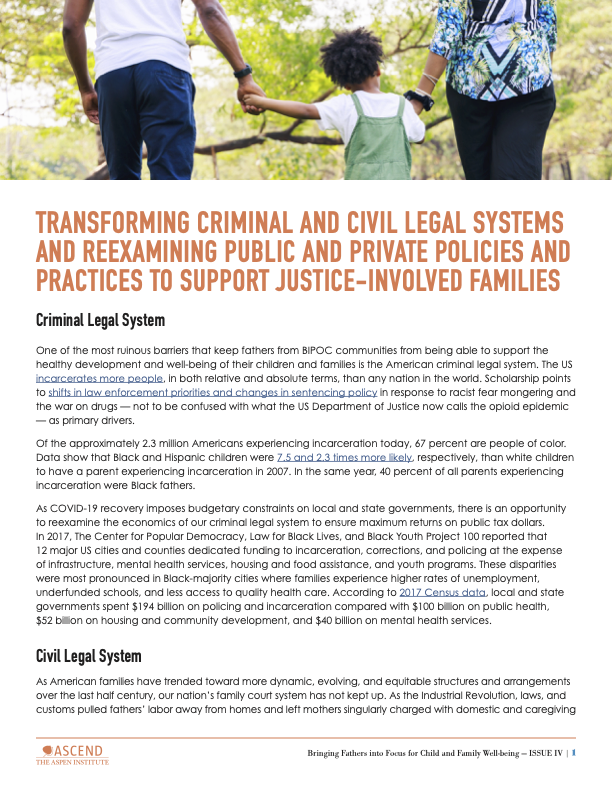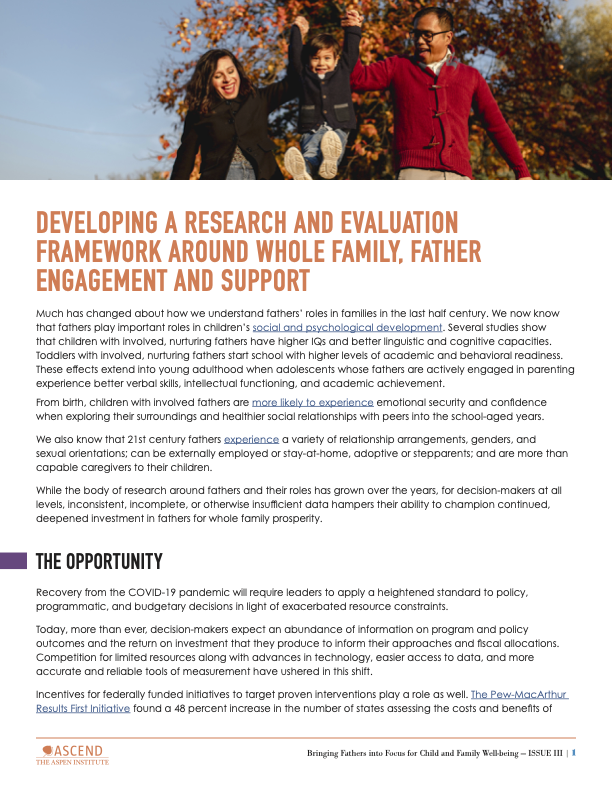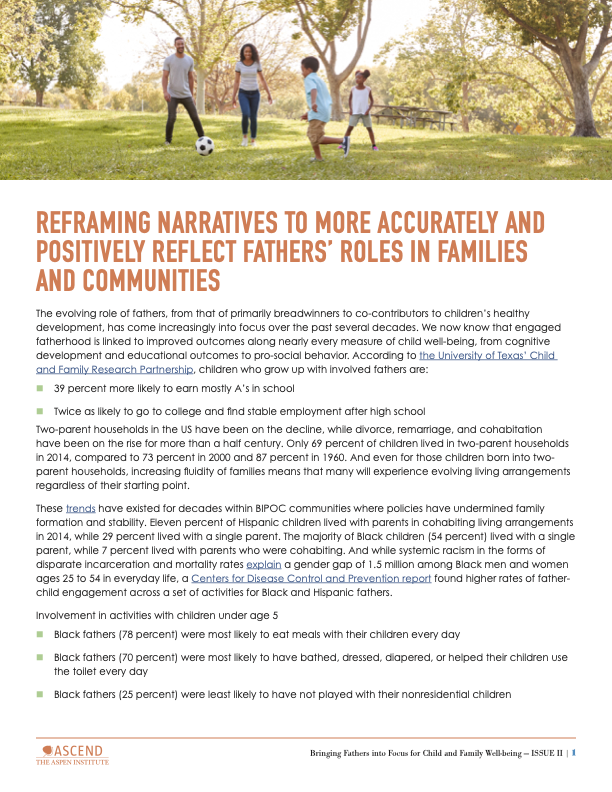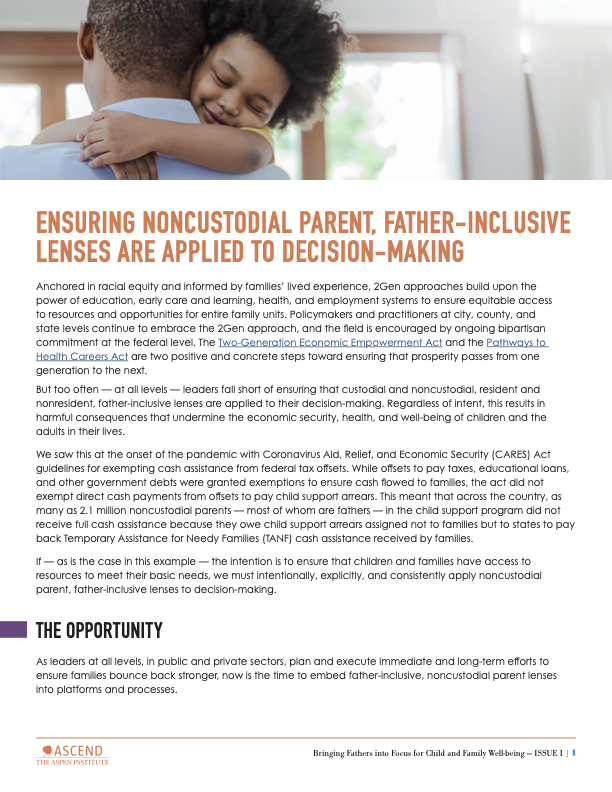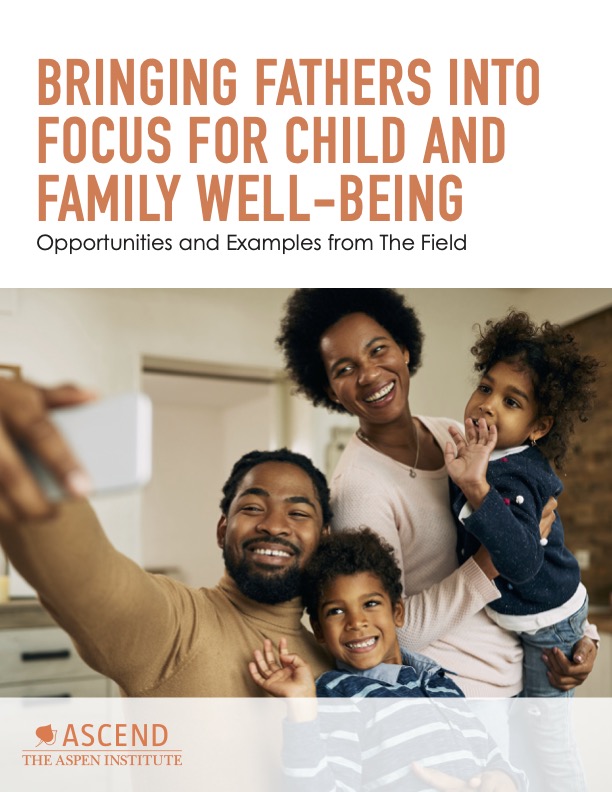
Bringing Fathers Into Focus for Child and Family Well-Being
The evidence is clear; fathers — regardless of residential or relationship status — play a critical role in children’s health and influence maternal well-being. Fathers’ contributions to children’s development have been associated with improved cognitive development, social responsiveness, and independence across the lifespan. A growing body of research suggests that mothers whose partners are engaged in the prenatal period access health services at higher rates, experience lighter workloads, and are at lower risks for post- partum depression. As we reimagine our public systems and services to work better for families, we have an opportunity to do so in a way that honors the full diversity of family structures and builds upon families’ inherent resilience. This requires an intentional and explicit commitment to applying a gender lens inclusive of fathers to our analyses of family- supportive policy, practice, and research.
